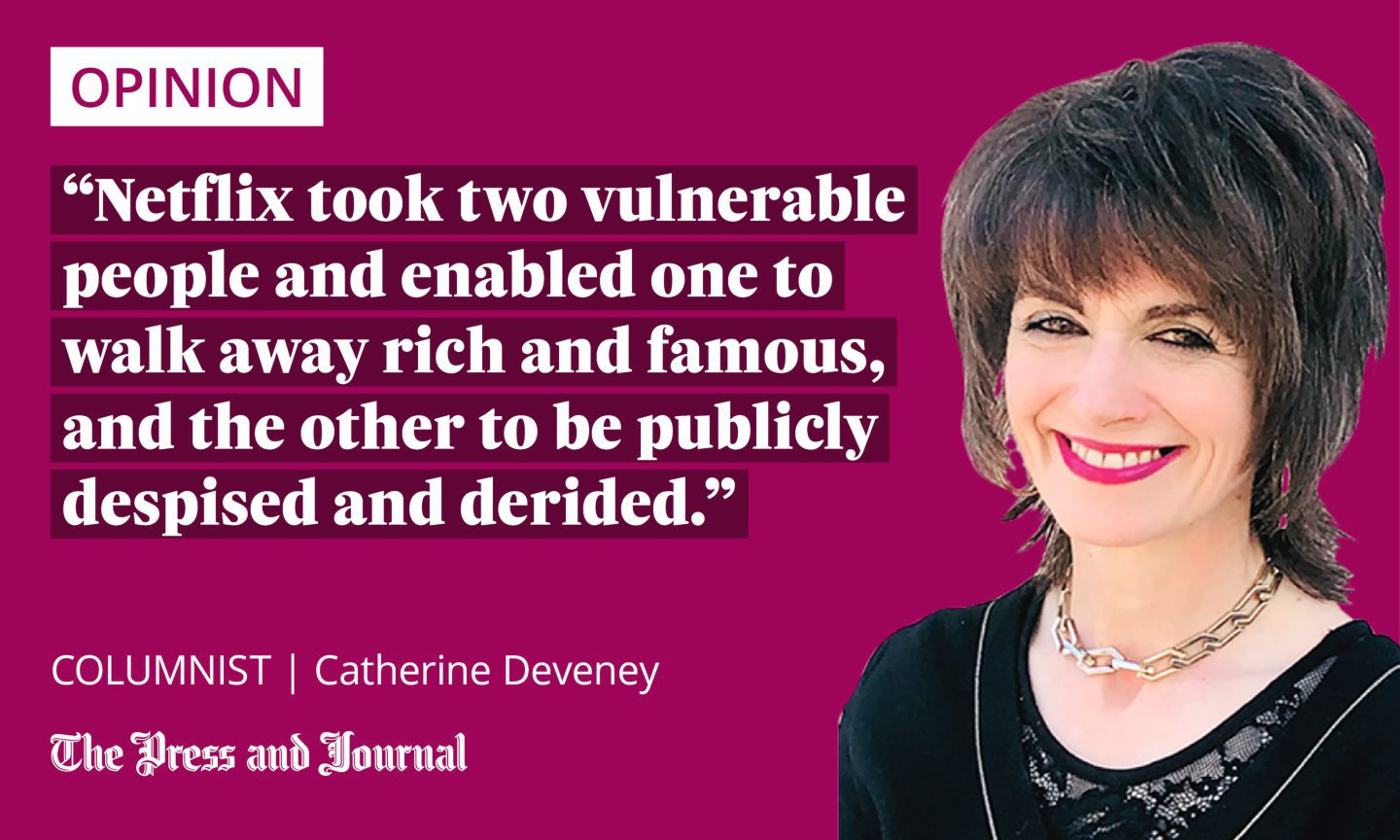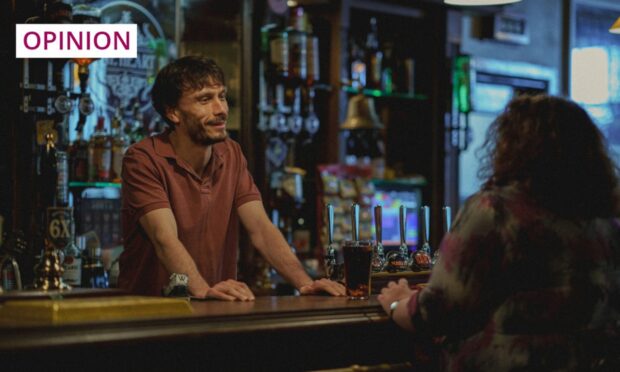Baby Reindeer, Netflix’s hugely successful stalking drama based on the experience of Richard Gadd, its Scottish writer and lead actor, brought back a bittersweet memory.
First, the bitter. As a naive, shinily-new, reporter, I was asked to get an interview with a man accused of stalking a very famous celebrity. The request horrified me. What sense did the editor expect from such an interview? What possible insight could be gained from it? It was like asking a blind man to describe the view.
Having recently transitioned from a teaching job, it felt like I had landed on Mars when I pulled up in an affluent street of a Scottish town. Nothing in this landscape was familiar. Until, that is, I talked to the stalker’s mother.
Her distress was volcanic, rising from deep inside, despair running like rivers of molten lava as she described her son’s situation. “Please,” she begged, “leave us alone.”
Was she saying her son was mentally unwell? “What do you think?” She demanded – a suitable retort to a stupid question.
As the mother of a baby boy, it felt like fast-forwarding 30 years into some kind of maternal hell. To the world, this was just some crazy stalker. To his mother, this was her son. Her boy.
For someone at the start of a media career, it was a useful reminder. This was not primarily a salacious true-crime tale. It was the story of a mentally unwell young man. The story of a mother, and of a family. I sympathised and backed away.

Baby Reindeer has attracted 54 million viewers worldwide – an indication of how topical stalking has become, with a number of documentaries running recently showing the tragic results of ignoring or trivialising it. This is not a minor crime. Often, it is a prelude to a major one.
Gadd plays Donny, a barman and would-be comedian who is stalked by Martha, a distressed woman who comes into the pub where he works. Donny gives her tea on the house, and from that act of kindness flows several years of stalking, and 41,000 emails.
At the start of the seven-part drama, the words “this is a true story” appear on-screen. That is where Netflix’s problem begins. Deviate from the truth, exaggerate the action, and the story becomes defamatory.
Baby Reindeer has two extremely vulnerable people at its heart
Within days of its meteoric rise in the viewing charts, the real Martha was tracked down. While Baby Reindeer also includes the horrific rape of Gadd by a well-known television figure, that attracted significantly less interest. Attention focused on the obviously deranged female stalker, not the violent male sexual predator.
The problem is that at the drama’s heart are two extremely vulnerable, broken people. Donny acknowledges his own culpability, his fragile ego’s need for attention. In fact, what cements their “relationship” is that Martha, for all her violent craziness, is astute.
“You have been harmed, baby reindeer, haven’t you?” She says, and in her question lies all the unspoken, unrecognised hurt of her own life. Takes one to know one.
The media ethics of all this are complex. Martha’s identity was easily exposed when her anonymity should have been protected. If the drama’s action is inaccurate, she deserves a right to reply. That came in an interview – a dance with the devil, some say – with Piers Morgan, which attracted 10 million viewers, plus another 30 million on social media platforms. “Martha” was grilled for an hour, denying many of the elements of the story, including that she was ever convicted or imprisoned for stalking Gadd.
Fair to say, Martha’s problems were obvious in that interview. Morgan justified it by claiming she was given a very expensive haircut and made to feel good, but later criticised Netflix’s failure to uphold its duty of care. Which begged the question: what was his? A bottle of Herbal Essences?
Media’s duty to give voice and protect at the same time
“What do you think?” Back in the car, all those years ago, I put my head on the steering wheel, the words of the stalker’s mother ringing in my ears. Maybe media wasn’t for me. For years, the memory induced shame.
Then, the sweetness. Many years later, a letter for me arrived at the newspaper. It was from the stalker’s mother. She remembered our exchange, and had watched my career with interest. She wished me further success. She would never know quite how much she taught me.
If ‘Martha’ – now with a KC on her side – has never been convicted of stalking, Netflix should pay for that defamation
There is a tightrope to walk in media ethics: the duty to give voice to the voiceless, but the simultaneous duty to protect the vulnerable. The greatest power – and responsibility – in this instance lay with Netflix. It took two vulnerable people and enabled one to walk away rich and famous, and the other to be publicly despised and derided.
If “Martha” – now with a KC on her side – has never been convicted of stalking, Netflix should pay for that defamation, however true the rest of its story was. Given they rake in over $5 billion of profit annually, I reckon their ethical carelessness will still leave them quids in.
Catherine Deveney is an award-winning investigative journalist, novelist and television presenter

Conversation